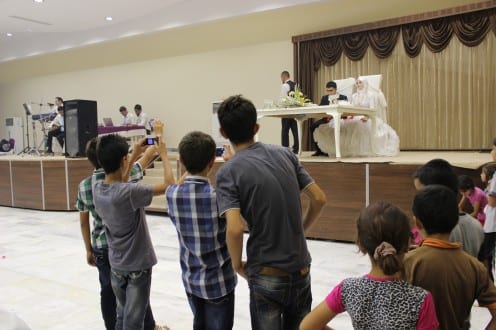Social media and new rewards in learning
By Elisabetta Costa, on 19 June 2015

Photo by Elisabetta Costa
Education has become an important topic of investigation in our comparative research. Last May we also explored and presented our findings in a workshop held at UCL. In Mardin, similarly to field-sites in rural China and Brazil, parents and kids tend to see social media as a dangerous threat to formal education. The education system in Turkey is built around examination preparation, and examination results can chart the course of a person’s life. In this context social media is deemed by students and parents as responsible for worsening exam results, as it takes time away from books. For this reason students preparing for important examinations often close their Facebook or Twitter accounts for a few weeks or months. Whereas social media seems not to be beneficial to the preparation of multiple choices exams, in other situations it emerged to be quite helpful in the learning process.
This is the case for University students attending the English preparatory class at Mardin Artuklu University. Instructors of English highlighted a general lack of motivation among students, who were more interested in passing the exam than learning the language. Also, students used mnemonic approaches that led them to memorise grammar rules, rather than actively engage with the new language. In this context, social media has contributed to creating new motivations and rewards where the formal education system has failed. Students, indeed, were practicing English on social media in four different ways:
- Male students used Facebook to secretly flirt and communicate with foreign women.
- Students often wrote quotations or uploaded their status in English, they wanted to be seen by teachers, friends and peers as proficient English speakers.
- Students joined English language political groups dealing with the Kurdish issues.
- Students listened to English songs on YouTube.
Love, fame, politics and music became four new rewards which drove students to learn a foreign language. In a formal education system where the main concern of the students is the acquisition of a diploma, social media has created new rewards that positively influence learning motivations.
 Close
Close















